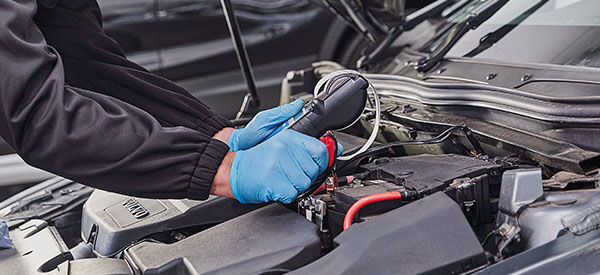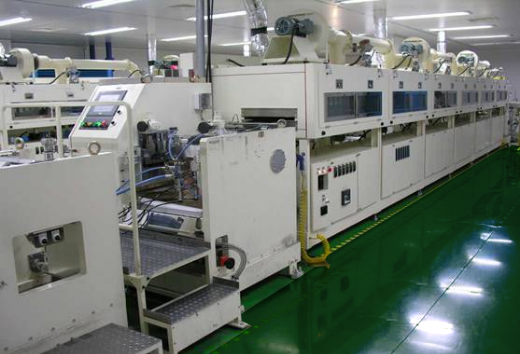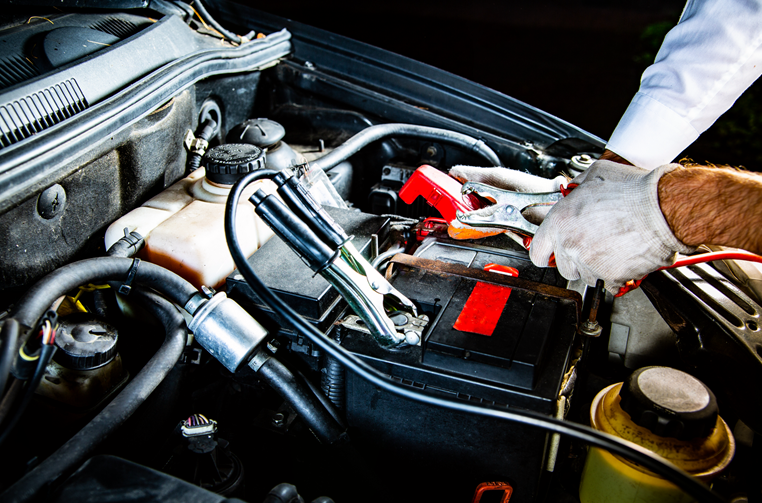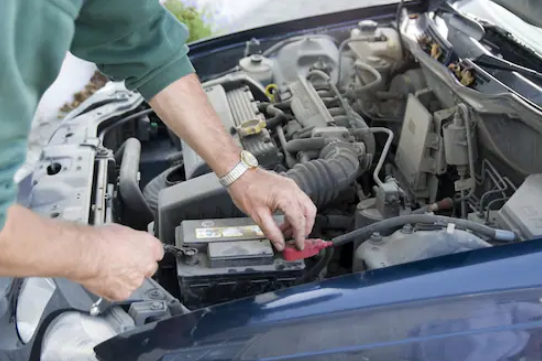Lithium Batteries: The Future of Energy Storage
In recent years, the demand for energy storage has increased significantly as more people are turning to renewable energy sources like solar and wind power. The key to reliable and efficient energy storage lies in the development of high-performance batteries. Among the different types of batteries available in the market, lithium-ion batteries have emerged as the most promising technology for energy storage.
Lithium-ion batteries are rechargeable batteries that use lithium ions as a key component in the process of energy storage and release. These batteries have several advantages over traditional lead-acid batteries and other conventional battery technologies. For starters, they have a higher energy density, which means they can store more energy in a smaller package. They also have a longer lifespan and can be recharged several times before they need to be replaced.
The use of lithium-ion batteries in portable electronic devices like smartphones and laptops has become mainstream in recent years. However, their potential for energy storage on a larger scale is still being explored. With the growing demand for renewable energy sources, the development of efficient and reliable energy storage systems based on lithium-ion batteries has become a key research area.
One of the most significant advantages of lithium-ion batteries is their ability to store energy from intermittent sources like solar and wind power. These energy sources are unpredictable and can vary in intensity, making it difficult to rely on them as a primary source of energy. However, with the use of lithium-ion batteries, excess energy generated during peak hours can be stored and used during periods of low energy production.
Another advantage of lithium-ion batteries is their scalability. Lithium-ion batteries can be scaled up or down depending on the energy storage requirements. This means they can be used for small-scale applications like powering homes or large-scale applications like providing backup power for entire cities.
The adoption of lithium-ion batteries in the transportation sector is also on the rise. Electric vehicles (EVs) are becoming increasingly popular as people look for more environmentally friendly alternatives to traditional gasoline-powered cars. Lithium-ion batteries are the most commonly used type of battery in EVs due to their high energy density and reliability.
There are, however, some challenges associated with the use of lithium-ion batteries for energy storage. One of the main issues is the high cost of production. Lithium-ion batteries use rare and expensive materials like cobalt and lithium, which drive up the cost of production. However, with advancements in technology, the cost of lithium-ion batteries is expected to decline in the future.

Another challenge is the environmental impact of lithium-ion batteries. The mining and production of lithium and other materials used in these batteries can have negative environmental consequences. However, there are efforts underway to develop more sustainable methods of production and recycling of these materials.
In conclusion, lithium-ion batteries are the future of energy storage. With their high energy density, scalability, and ability to store energy from intermittent sources, they offer a reliable and efficient solution to the challenges of renewable energy storage. While there are still some challenges that need to be addressed, the continued research and development of lithium-ion batteries will pave the way for a more sustainable energy future.
-
 A starter battery is an essential component of any vehicle, providing the necessary electrical power to start the engine. It is important to keep the battery in good condition to avoid unexpected breakdowns and costly replacements. Here are some tips on how to keep your starter battery working longer:1. Regularly check the battery\'s charge levelA battery that is not fully...En savoir plus
A starter battery is an essential component of any vehicle, providing the necessary electrical power to start the engine. It is important to keep the battery in good condition to avoid unexpected breakdowns and costly replacements. Here are some tips on how to keep your starter battery working longer:1. Regularly check the battery\'s charge levelA battery that is not fully...En savoir plus -
 As the world becomes more reliant on technology, the need for reliable power sources continues to grow. For those who require long-term power solutions, the high-capacity 12V LiFePO4 battery is an excellent option. With a capacity of 100Ah, this battery provides ample energy to power a variety of devices and applications. LiFePO4 batteries are a type of lithium-ion battery...En savoir plus
As the world becomes more reliant on technology, the need for reliable power sources continues to grow. For those who require long-term power solutions, the high-capacity 12V LiFePO4 battery is an excellent option. With a capacity of 100Ah, this battery provides ample energy to power a variety of devices and applications. LiFePO4 batteries are a type of lithium-ion battery...En savoir plus -
 LiFePO4 batteries have become increasingly popular in recent years due to their long lifespan and high performance. They are widely used in various applications, including electric vehicles, renewable energy systems, and portable electronics. However, how long can a LiFePO4 battery last? In this article, we will explore the lifespan of a LiFePO4 battery and factors that affect its longevity. ...En savoir plus
LiFePO4 batteries have become increasingly popular in recent years due to their long lifespan and high performance. They are widely used in various applications, including electric vehicles, renewable energy systems, and portable electronics. However, how long can a LiFePO4 battery last? In this article, we will explore the lifespan of a LiFePO4 battery and factors that affect its longevity. ...En savoir plus -
 There has been a growing demand for electric vehicles, including UTVs (Utility Task Vehicles). UTVs are known for their versatility and ability to handle tough terrains, making them popular among outdoor enthusiasts and professionals alike. However, to fully enjoy the benefits of a UTV, it is crucial to have a reliable and efficient power source. This is where the UTV...En savoir plus
There has been a growing demand for electric vehicles, including UTVs (Utility Task Vehicles). UTVs are known for their versatility and ability to handle tough terrains, making them popular among outdoor enthusiasts and professionals alike. However, to fully enjoy the benefits of a UTV, it is crucial to have a reliable and efficient power source. This is where the UTV...En savoir plus -
 With the increasing demand for clean and sustainable energy solutions, lithium batteries have gained significant popularity in recent years. Among the various types of lithium batteries available in the market, the 100Ah Lithium Iron Phosphate (LiFePO4) battery stands out for its long-lasting power and numerous benefits. In this article, we will delve into the features and advantages of the 100Ah...En savoir plus
With the increasing demand for clean and sustainable energy solutions, lithium batteries have gained significant popularity in recent years. Among the various types of lithium batteries available in the market, the 100Ah Lithium Iron Phosphate (LiFePO4) battery stands out for its long-lasting power and numerous benefits. In this article, we will delve into the features and advantages of the 100Ah...En savoir plus -
 Cranking Battery: Essential Power Source for Your BoatBoating enthusiasts understand the importance of having a reliable power source for their boats. One crucial component that ensures a smooth and efficient operation is the cranking battery. This essential power source is designed specifically for the demands of starting the boat\'s engine and powering various electrical systems.A cranking battery, also known as...En savoir plus
Cranking Battery: Essential Power Source for Your BoatBoating enthusiasts understand the importance of having a reliable power source for their boats. One crucial component that ensures a smooth and efficient operation is the cranking battery. This essential power source is designed specifically for the demands of starting the boat\'s engine and powering various electrical systems.A cranking battery, also known as...En savoir plus -
 Introduction Lithium Iron Phosphate (LiFePO4) batteries are fast becoming popular among motorcycle enthusiasts due to their durability, long lifespan, and superior performance compared to conventional lead-acid batteries. These batteries are known for their high energy density, low discharge rates, and safe operation, making them an ideal choice for motorcycle applications. In this article, we will discuss the advantages of...En savoir plus
Introduction Lithium Iron Phosphate (LiFePO4) batteries are fast becoming popular among motorcycle enthusiasts due to their durability, long lifespan, and superior performance compared to conventional lead-acid batteries. These batteries are known for their high energy density, low discharge rates, and safe operation, making them an ideal choice for motorcycle applications. In this article, we will discuss the advantages of...En savoir plus

